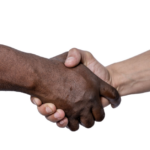Are Police Really Committed to Fighting Hate Crime?

Hate crime has been in the news recently with increased tensions arising out of reports of growing anti-Muslim sentiment among many Australians.
International acts of terrorism, the reporting of the activities of ISIS, and the Sydney siege last year have all served to fuel these tensions to the point where many Muslims feel that they face serious risks to their safety.
From attacks on Muslim women, to carrying a knife into a school, to vandalism of mosques, the incidences of hate crime have increased amid concerns that police aren’t doing enough to combat this growing threat.
But it’s not only people who are members of a particular religious or ethnic group who can be the targets of hate crime.
In January, a woman living in Tasmania was the target of hate criminals days after her home was flooded and she was forced to move out.
On returning to feed her animals, the woman and her family found homophobic graffiti had been sprayed throughout her home.
What is hate crime?
A hate crime is generally defined as any crime that is motivated wholly or partially by a bias or prejudice towards a person who is from or believed to be from a specific, identified group.
These groups are often identified on the basis of their race, ethnicity, sexual orientation, background, age, disability or gender.
Hate crime can take the form of assault, harassment, intimidation, threats, property damage or any other form of criminal activity that targets individuals based on their supposed membership of an identified group.
Graffiti is a common form of hate crime and one that appears to be a growing problem, especially in certain areas of Sydney.
To be on the receiving end of hate crime, a person doesn’t have to be a member of the group targeted.
Many Australian Sikhs have spoken out against being targeted under anti-Islamic sentiment, purely on the basis of the beards and turbans worn by many of their men. This has allegedly increased since the terror alert was increased to high last year.
What are police doing to combat hate crime?
In spite of the widespread number of incidents of hate crime, there is only one dedicated hate crime unit in Australia, and only four officers working in the NSW-based department.
This has led many to question whether this is likely to be enough to combat the problem and protect innocent members of the community who may be unfairly targeted.
The Bias Motivation Unit was set up in 2013 after the 2005 Cronulla riots and has recently received more resources, with promises of additional funding and resources in the future.
Currently, due to the limited staffing and resources of the Bias Motivation Unit, the majority of local investigations into suspected hate crimes are still undertaken by local police officers.
Many local Islamic leaders believe that hate crime is not being taken seriously enough and more resources should be put into preventing it and dealing with those found committing hate crimes.
Criticisms of the Bias Crimes Unit state that there are poor reporting processes and it doesn’t work in a meaningful way with local community and religious organisations.
According to NSW Police they are undertaking a number of initiatives to reduce and deal with hate crime in the state, including the creation of community liaison officers to help police interact more effectively with the community.
These liaison officers are divided into three categories – ethnic community liaison officers, Aboriginal community liaison officers and gay and lesbian liaison officers.
Although the stated aim of these officers is to facilitate communication and interaction between police and different community groups, it seems unclear what they are actually doing to prevent hate crimes and deter people from committing them.
NSW Deputy Police Commissioner Nick Kaldas states that only 5% of hate crimes are reported to authorities, with those targeted often believing the matter too trivial to be reported while other community organisations and spokespeople believe it’s more due to a lack of confidence that police will take their complaints seriously.
When you compare the resources the police service has put into managing and preventing hate crime with the resources it puts into other areas of crime, including terrorism, drug and traffic offences, it is fairly clear that hate crime does not take high priority.






